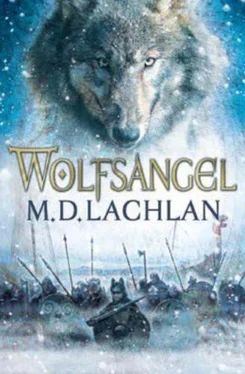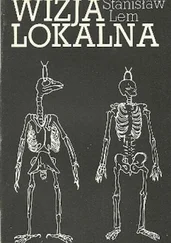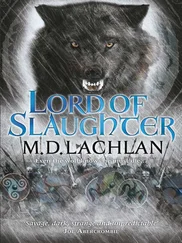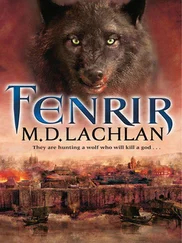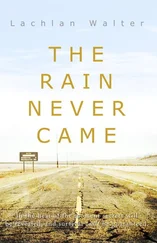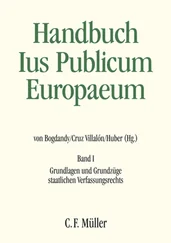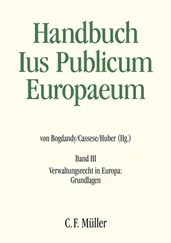M. Lachlan - Wolfsangel
Здесь есть возможность читать онлайн «M. Lachlan - Wolfsangel» весь текст электронной книги совершенно бесплатно (целиком полную версию без сокращений). В некоторых случаях можно слушать аудио, скачать через торрент в формате fb2 и присутствует краткое содержание. Жанр: Фэнтези, на английском языке. Описание произведения, (предисловие) а так же отзывы посетителей доступны на портале библиотеки ЛибКат.
- Название:Wolfsangel
- Автор:
- Жанр:
- Год:неизвестен
- ISBN:нет данных
- Рейтинг книги:5 / 5. Голосов: 1
-
Избранное:Добавить в избранное
- Отзывы:
-
Ваша оценка:
- 100
- 1
- 2
- 3
- 4
- 5
Wolfsangel: краткое содержание, описание и аннотация
Предлагаем к чтению аннотацию, описание, краткое содержание или предисловие (зависит от того, что написал сам автор книги «Wolfsangel»). Если вы не нашли необходимую информацию о книге — напишите в комментариях, мы постараемся отыскать её.
Wolfsangel — читать онлайн бесплатно полную книгу (весь текст) целиком
Ниже представлен текст книги, разбитый по страницам. Система сохранения места последней прочитанной страницы, позволяет с удобством читать онлайн бесплатно книгу «Wolfsangel», без необходимости каждый раз заново искать на чём Вы остановились. Поставьте закладку, и сможете в любой момент перейти на страницу, на которой закончили чтение.
Интервал:
Закладка:
The Moonsword was out, and he looked around for whatever would come next. The light was so inconstant, one instant flat dark, the next the pale washed-out murk of a rain-soaked dusk. He wanted to find Saitada, to throw her to the witch, but she was not there.
‘Authun the Wolf,’ said a child’s voice in his head, ‘mightiest warrior in Midgard, is there no one who can defeat you in arms?’
‘Gullveig! Gullveig!’ Authun screamed, trying to make the witch queen hear him. He must not reply, he knew. He must not accept the delusion, enter into it and become consumed by it. I know one who can lay you low, I know one who can prick you so. If you defeat this one I know Then, King Wolf, I will let you go.
No mortal had ever challenged him and lived. He did what he had sworn not to: he answered the voice. ‘Bring forth your champion!’
Behind the veil of rain there was a shimmering and the shape of a man took form. It seemed to Authun that the witch had underestimated him. His opponent was a man of near forty with long white hair and a straggly beard. He looked careworn and beaten by his years but there was something in his hand that shone with a cold fire. It was a sword, curved, slim and wicked. Even in the dullness of the rain it gleamed. Authun recognised it at the same time he recognised his opponent. It was the Moonsword. His opponent was himself.
As the realisation hit him something very strange happened. He saw himself with his back to the rock and he saw himself advancing towards the rock. He seemed to be both warriors at the same time, looking out through both men’s eyes. He could see a white figure with a woman and two babies at his back but at the same time he could see the same white figure advancing from the rock and hear the cry of the boys behind him. Authun did not know which warrior he was and in some way he was both.
More reflective men might have wondered what to do, but Authun, both Authuns, had been brought up to value swift action. The kings closed with each other and began to fight. It was a hopeless struggle, each man guessing the other’s moves, each anticipating blows and ducking beneath them or stepping away so their swords sliced through thin air. All things being equal they could have fought like that for ever. But all things are not equal. What we do and how we react is not the same when we are facing up a slope as when we are facing down. Authun might instinctively know his opposing self might offer three feints and then a strike to the legs, but he couldn’t know by how much the ground had raised one of his attacker’s legs higher than the other, where the disposition of his weight lay — largely on one foot, largely on the other or spread. He could not guess when the rain would blind his eyes or when it would clear from his opponent’s. Also, what you do facing a rock, looking only at blackness, is different to what you do facing a man with a moving background of trees. We are not the same people facing north as we are facing south: humans are a inconstant and contingent race. So the king did strike himself, a glancing blow to his flank.
Authun felt pleased he had drawn first blood but was also alarmed that he had been wounded. But then the king who struck the blow felt something in his side. An identical wound to the one he had inflicted had appeared. The king could not stop, could not back down, he was incapable of even having such an idea. So he struck again and hit again and both kings took a wound to the forearm. Then one to the ear, then the hand. Who hit and who received the blows became unclear, but Authun kept fighting because that was the only option for someone raised to believe the sword was the answer to everything.
One thing was plain to Saitada, though: if the fight went on she was about to lose her children’s guardian.
Clinging to the boys — she wouldn’t leave them — she sprang out into the rain to interpose herself between the warriors.
‘No!’ she shouted. ‘Enough!’ But her words, incomprehensible to the kings, were lost in the rain, and suddenly it was as if a giant hand had lifted her from the ground and she was shooting up through the sodden air, up the cliff, up and up and up. Then she heard a strange childish voice speak to her.
‘Die,’ it said.
She was falling, squeezing her babies to her. Then it was light and quiet and the same voice spoke again.
‘Forgive me, Lord Loki,’ it said.
‘Sister, we all make mistakes. Forget the error, and forget me too,’ said Saitada, though it wasn’t her voice. It was the voice of the strange traveller, the boys’ father. And then she was on the ground below the rock, and Authun, bloodstained and panting, was standing over her. It was dawn and the sun warmed her face.
‘They have sent a boy to guide us,’ said the king. ‘See to the children and then we’ll get going.’ Strangely, she understood him, though he was still speaking his own language.
A pale child of about eight was in front of them, laden with protective charms, arm rings, amulets and talismans.
‘Follow,’ he said.
And they set off, on the arduous journey across the Troll Wall and up to the witches’ realm.
5
The cliff was perilous and it was becoming clear to Authun that they would not reach the top. The woman had finally yielded her children and they were strapped wriggling and squalling to the king, the mother checking their bindings with irritating regularity.
Authun still shivered to look at her but he could not yet cast her aside. He shivered still more when he thought of the ordeal that faced him in meeting the witch queen.
‘Do you know where you are going, child?’ he asked the boy.
The boy just kept on climbing.
It had been a still day at the bottom, but here, an inexorable ten days up, along winding paths, down others, braving terrible scrambles and awful jumps, the wind almost flattened the climbers to the rock. Authun had thought the slave girl would never make it. There was a path, not that you would see it from the bottom, but it was so narrow in places that even Authun, who had stared down death so many times without blinking, felt a tightness in his stomach as he trusted his life to a root or a fingerhold. He did not look down.
They slept tied on to the cliff with ropes and pegs the boy had with him, and surrounded by charms. The child seemed not to sleep but spent the night chanting a strange song to a broken tune in a language Authun did not understand. The only thing that troubled the king’s dreams was the anticipation of what was to come.
And then the overhang became serious. Impassable. How had he reached the witches before? Authun couldn’t remember. He remembered only the prophecy, the witch queen’s presence and the dark.
Inside the clouds, visibility down to a few paces, the path finally gave out. The child guide seemed to have missed the entrance to the caves. Authun felt the fear drying his mouth. He was weak, the girl was weaker. They wouldn’t survive the climb down, even if the boy agreed to guide them. The boy clambered back around Authun, back around Saitada and then, just visible in the clinging mist, he beckoned them. There in the rock was a gap, no more than a crack. It was only a shoulder’s width and scarcely as tall as a man. Authun would not be able to pass through it with the children, and even without them would have to turn sideways and wriggle his way in. He peered into the blackness and smelled the deep earth. He could see nothing at all but he had to go on. He untied the infants and gave them to their mother. Then he slid inside after the boy. There was only the weak light from outside to see by. He could see an arm’s length, maybe a little more, in front of his face but after that nothing. The mother passed her wailing children in. She was committed to Authun now, whether she liked it or not, and had no other option than to follow.
Читать дальшеИнтервал:
Закладка:
Похожие книги на «Wolfsangel»
Представляем Вашему вниманию похожие книги на «Wolfsangel» списком для выбора. Мы отобрали схожую по названию и смыслу литературу в надежде предоставить читателям больше вариантов отыскать новые, интересные, ещё непрочитанные произведения.
Обсуждение, отзывы о книге «Wolfsangel» и просто собственные мнения читателей. Оставьте ваши комментарии, напишите, что Вы думаете о произведении, его смысле или главных героях. Укажите что конкретно понравилось, а что нет, и почему Вы так считаете.
